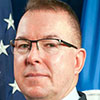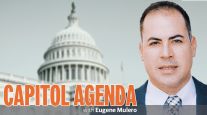Senior Reporter
Senate Highway Policy Panel Examines Telework’s Potential
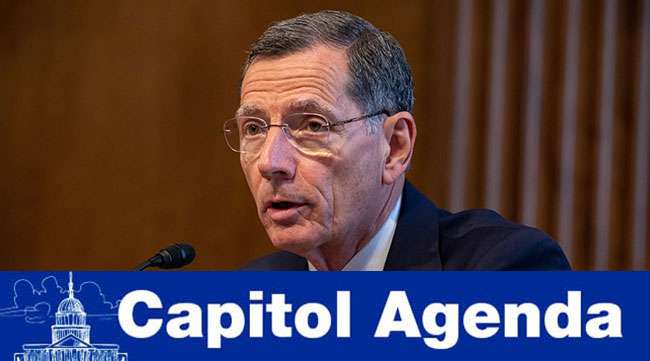
[Stay on top of transportation news: Get TTNews in your inbox.]
There was a time, not so long ago, when many of us woke up early. Drank lots of coffee. Put on professional attire. Endured rush-hour traffic to arrive at a cubicle and work for many hours. This weekly routine was repeated for years, possibly decades.
The pandemic changed all that. Stay-at-home orders required us to make telework our new normal. With the magic of the internet, or the “series of tubes” former Sen. Ted Stevens (R-Alaska) described, working from home has not only been possible. At times, it’s been easy.
For several months, the teleworking crowd zoomed, emailed, webcast, teleconferenced, phoned, tweeted, read and wrote from home offices, couches, counters, tables, chairs, pillows and beds. The nouveau work life, which the financial sector and Big Tech adopted years ago, is very likely here to stay.
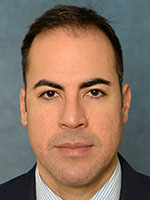
Mulero
If productivity output during the pandemic has either remained status quo or increased, why mess with the magic? The Senate’s highway policy committee looked into that question at a hearing last week.
“We have had to find a way to get our jobs done and keep our economy going. The financial hit to small and larger businesses has been devastating during this crisis. Reducing expenses is increasingly important for individuals, and businesses, as the country struggles with the unexpected costs of the coronavirus pandemic,” Sen. John Barrasso (R-Wyo.), chairman of the Environment and Public Works Committee, said July 29. He highlighted work expenditures, primarily lunch, fuel and even dry cleaning, adding, “Such cost savings are likely to persist after the pandemic. Nearly one in five private sector chief financial officers plans to keep at least 20% of their workforce working remotely after the COVID-19 pandemic ends, in order to cut costs.”
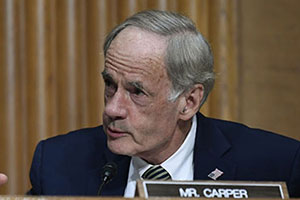
Sen. Tom Carper of Delaware (Susan Walsh/Bloomberg News)
Barrasso’s colleague, Delaware Sen. Tom Carper, the panel’s top Democrat, focused on telework’s potential to help clean up the environment. Because if people are working from home, their cars are not on the roads.
“For too long, we have witnessed the harmful effects of air pollution on public health and quality of life for so many Americans, especially those in our most vulnerable communities. I believe we should be doing whatever we can, as soon as we can, to reduce emissions associated with how we travel,” he said. “That can include reducing travel demand during rush hour, through telework policies. It also includes reducing vehicle emissions through fuel-economy standards and through the electrification of the cars, trucks and vans that we drive, which are the largest sources of global warming pollution in our country.”
Carper also proposed greater investment in multi-modal, low-emission transportation. Think transit, biking, and walking.
Mark Pringle EPW Testimony by Transport Topics on Scribd
Mark Pringle, a senior vice president at Dell Technologies, told the senators an aspect of his company had been teleworking prior to COVID-19. And that the health and economic crises caused by the pandemic present an opportunity for change.
“One of the best ways to recover from both catastrophes is to reimagine work in ways that genuinely improve the quality of life for our nation’s workforce,” he said.
Just imagine the possibilities. In the not-so-distant future, teleworking might be the way we do things. We could all work in a faraway city, a fancy museum, or a beach in the Caribbean, perhaps Aruba, Jamaica, Bermuda.
The Week Ahead (all times Eastern)
Aug. 5, 9 a.m.: The Federal Motor Carrier Safety Administration hosts a teleconference titled, “The FMCSA 2020 Trucking Safety Summit.”
Aug. 6, 10 a.m.: The Senate Commerce Committee hosts a nomination hearing with Eric Soskin to be Inspector General at the U.S. Department of Transportation, Robert Primus to be a member of the Surface Transportation Board, among others.
Freight Corridor
Brookings’ hot take on that elusive COVID-19 stimulus.
Elections 2020
A quick programming note: This column will take a few weeks off and return after Labor Day. In the fall, we plan to feature election coverage with a weekly spotlight on transportation policymakers.
 Buzz
Buzz

The U.S. House easily sent to the Senate the Water Resources Development Act of 2020, which would authorize construction projects at Army Corps of Engineers sites and release unspent funding from a harbor maintenance account.
Favorite Video
Access to PPP might be a matter of who you know.
Favorite Tweet
Person. Woman. Man. Camera. TV.
It’s like we’re in the 2nd inning, on our own 35-yard-line, in the 3rd period, at the zoo, trying to get a Chihuahua and a beautiful lion to mate, while a giraffe and flamingo stare longingly into each other’s eyes, wishing they could be lovers, knowing they can not. pic.twitter.com/yd0jcguz56 — Matt Fuller (@MEPFuller) July 29, 2020
The Last Word
There is a potential for a compounded effect that could result in a larger emergency than each disaster would be on its own.
Federal Emergency Management Agency Chief Peter Gaynor on July 24.
We publish weekly when Congress is in session. E-mail emulero@ttnews.com with tips. Follow us @eugenemulero and @transporttopics.
Want more news? Listen to today's daily briefing:
Subscribe: Apple Podcasts | Spotify | Amazon Alexa | Google Assistant | More


